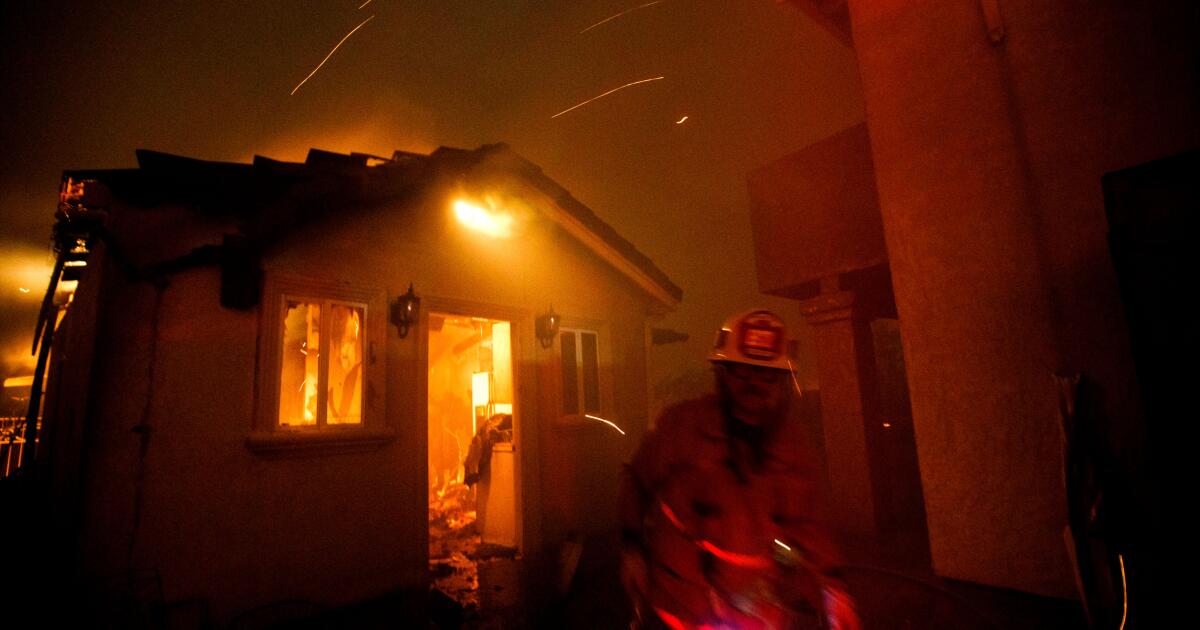An effort to restrict the thousands of recreational vehicles parked in residential areas, near schools and along business districts is gaining steam as Los Angeles struggles to find ways to house the families and individuals who live in them.
In a 14-0 vote Monday, the Los Angeles City Council ordered city agencies to come up with “recommendations for a citywide program” that would limit recreational vehicle parking while providing restrooms, septage disposal, housing assistance and other services in designated areas.
Thousands of Angelenos live in vehicles, and while Mayor Karen Bass has focused on housing homeless people living in tent encampments, finding places for families and individuals to sleep in shelters for four-wheelers has proven much more difficult. Many RV dwellers have jobs or families and don’t want to go to shelters with strict rules or lose their vehicles.
High rental prices have made RVs a comparatively more dignified alternative for those living on the margins. Small bathrooms and living spaces offer privacy, security and a sense of home. But communities have complained for years about the ubiquity of RVs, and in some of the worst encampments people dump trash and sewage, set fires in the street and deal drugs.
“Our city is not a trailer park and we cannot and should not tolerate the widespread impacts these trailer encampments cause,” said Councilwoman Traci Park, who championed the motion. Earlier this year, she helped expand overnight parking restrictions in parts of her district, including Venice, Mar Vista, Westchester, Brentwood and Pacific Palisades.
City districts have tried to deal with the proliferation of recreational vehicles with a hodgepodge of services, from emptying dirty septic tanks weekly to offering housing programs. But pressure for a citywide approach is mounting as more districts impose parking restrictions, forcing homeless people to play musical chairs every night to find a place to sleep.
In a landmark ruling last June, the Supreme Court cleared the way for cities to remove homeless encampments from parks, sidewalks and other areas, even when they lack enough shelter beds.
Gov. Gavin Newsom then ordered state agencies to dismantle the encampments and encouraged cities to do the same. Last week, he threatened to withdraw state funding from counties that failed to show improvements in homelessness.
Los Angeles has not “adjusted any policies” since the ruling, Park said, arguing for her motion before the council.
Councilman Eunisses Hernandez, who represents the Eastside, where working-class communities face constant pressure from gentrification, responded with concern about what the restrictions will mean for families and the city.
“We don’t even have enough staff to enforce it, and I don’t think it will work,” he said of any subsequent measures that would emerge from the recommendations and ban vehicle parking in large swaths of the city. He voted in favor of Park’s motion, not as an endorsement, but as a way to gather data.
She introduced a separate motion, approved on a 14-0 vote, aimed at gathering more information before creating a citywide policy that would move people from one place to another. The legislation calls for a report from the City’s Administrative Officer and the Los Angeles Homeless Services Authority that would map where people live in recreational vehicles and identify potential parking spaces for them.
It would also tabulate the cost to the city of an ordinance that would restrict parking and further analyze how such rules could harm vehicle dwellers who are driven away from the services and networks they rely on and could help them find permanent homes.
“I hope that we can continue to be mindful that RVs are not just vehicles and they’re not just places where, you know, sometimes there’s criminal activity, but they are homes for a lot of people who have been marginalized,” Hernandez said. “These people are families, veterans, and working-class individuals who have been forced to seek shelter wherever they can. These are real people who are facing uncertainty.”












